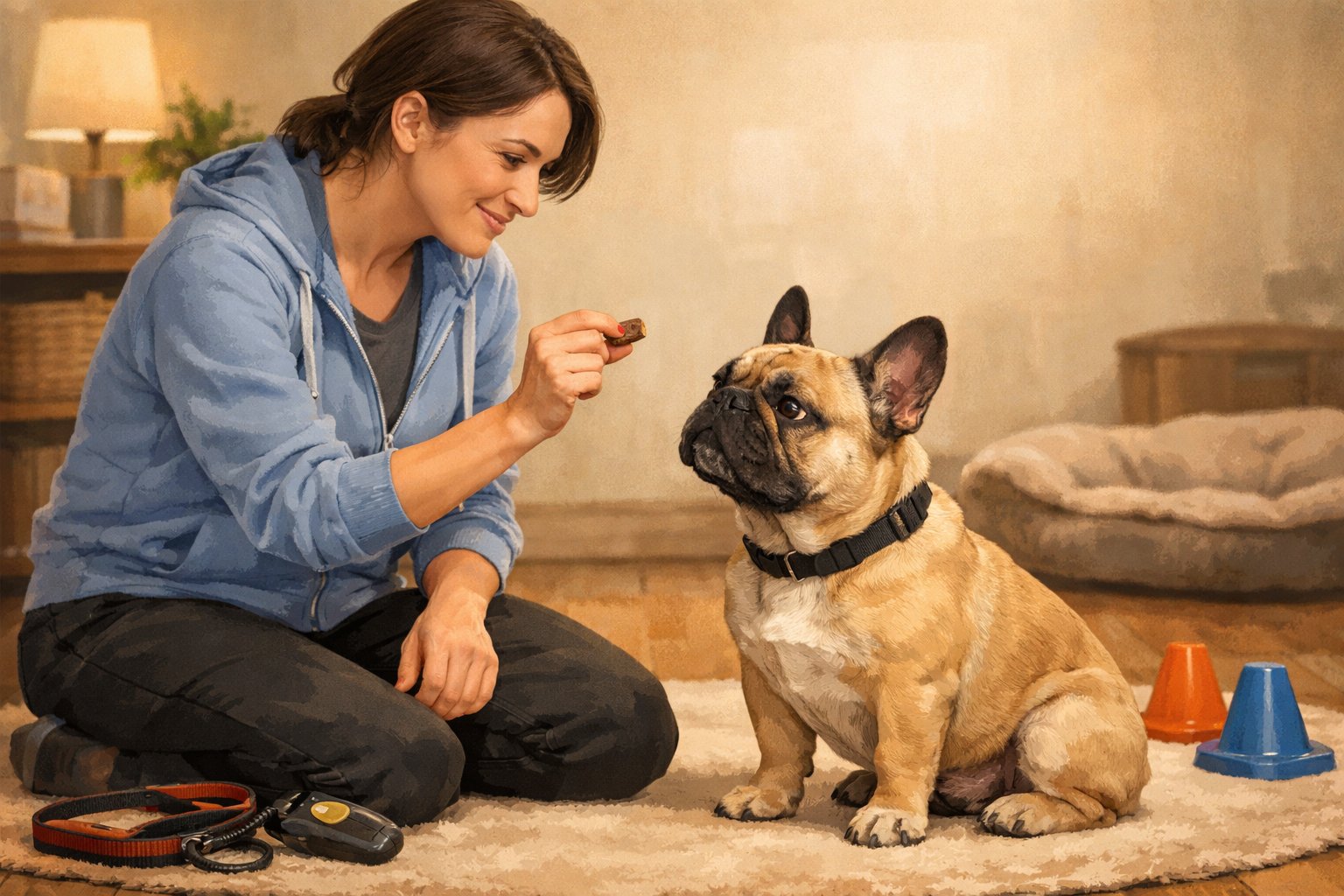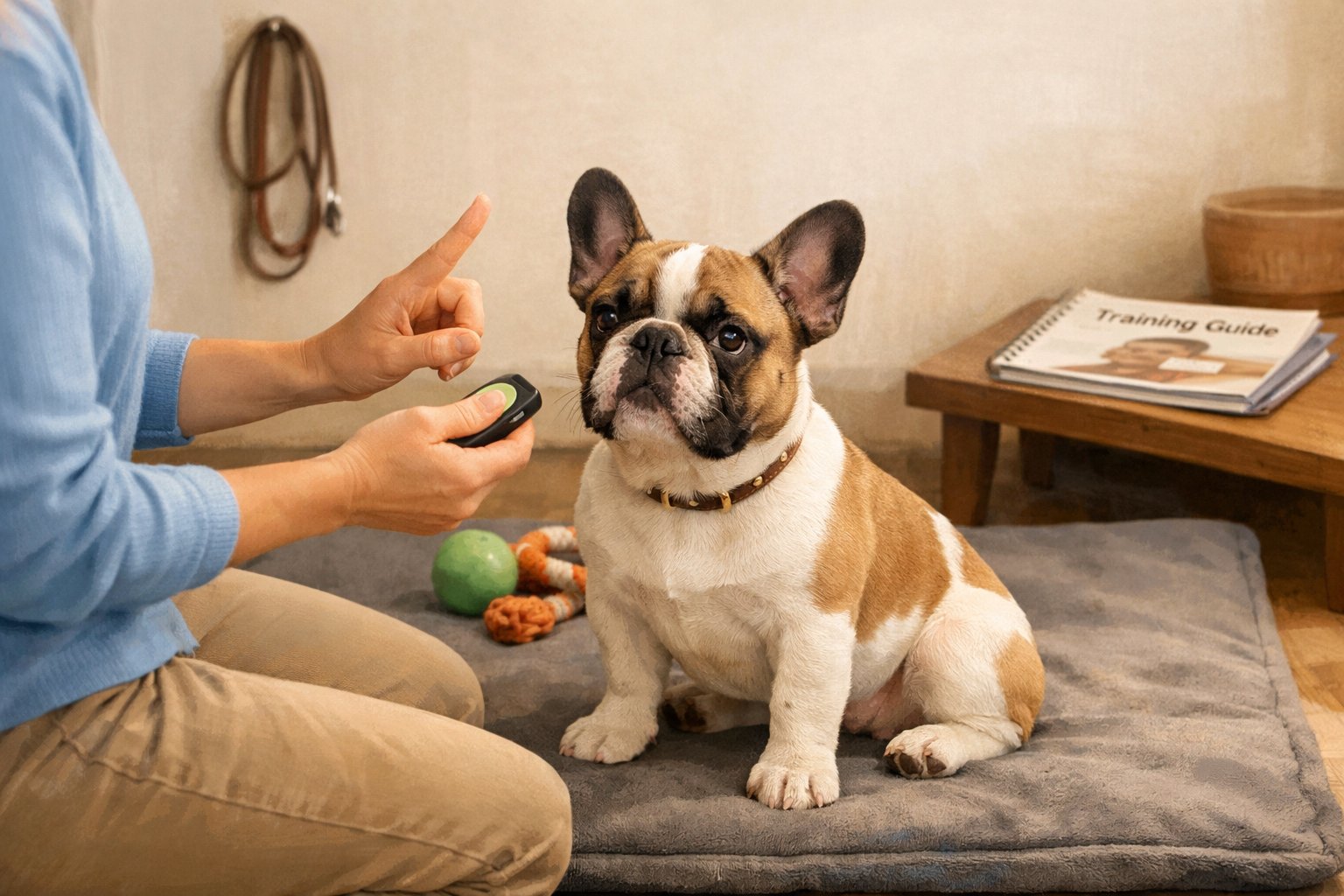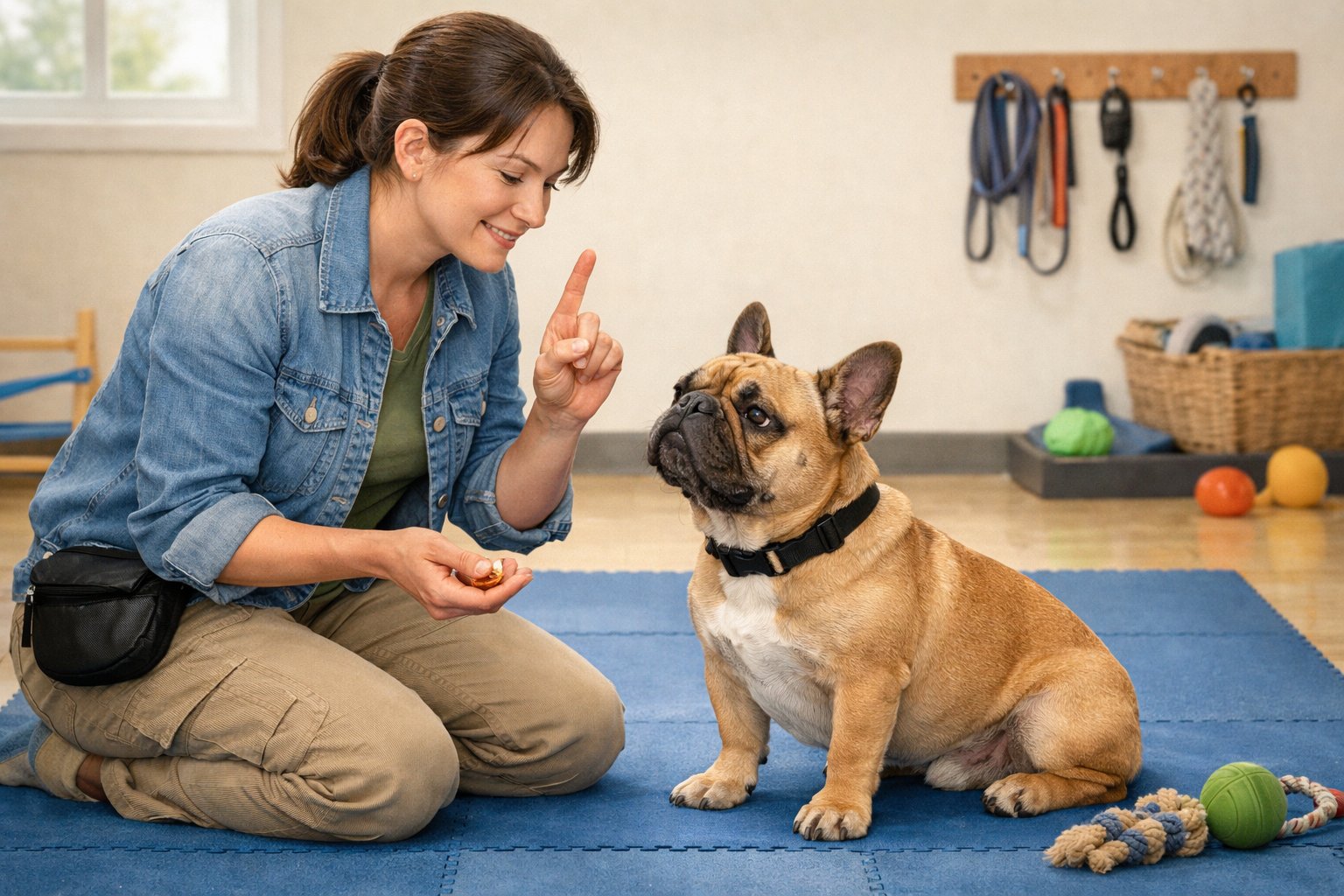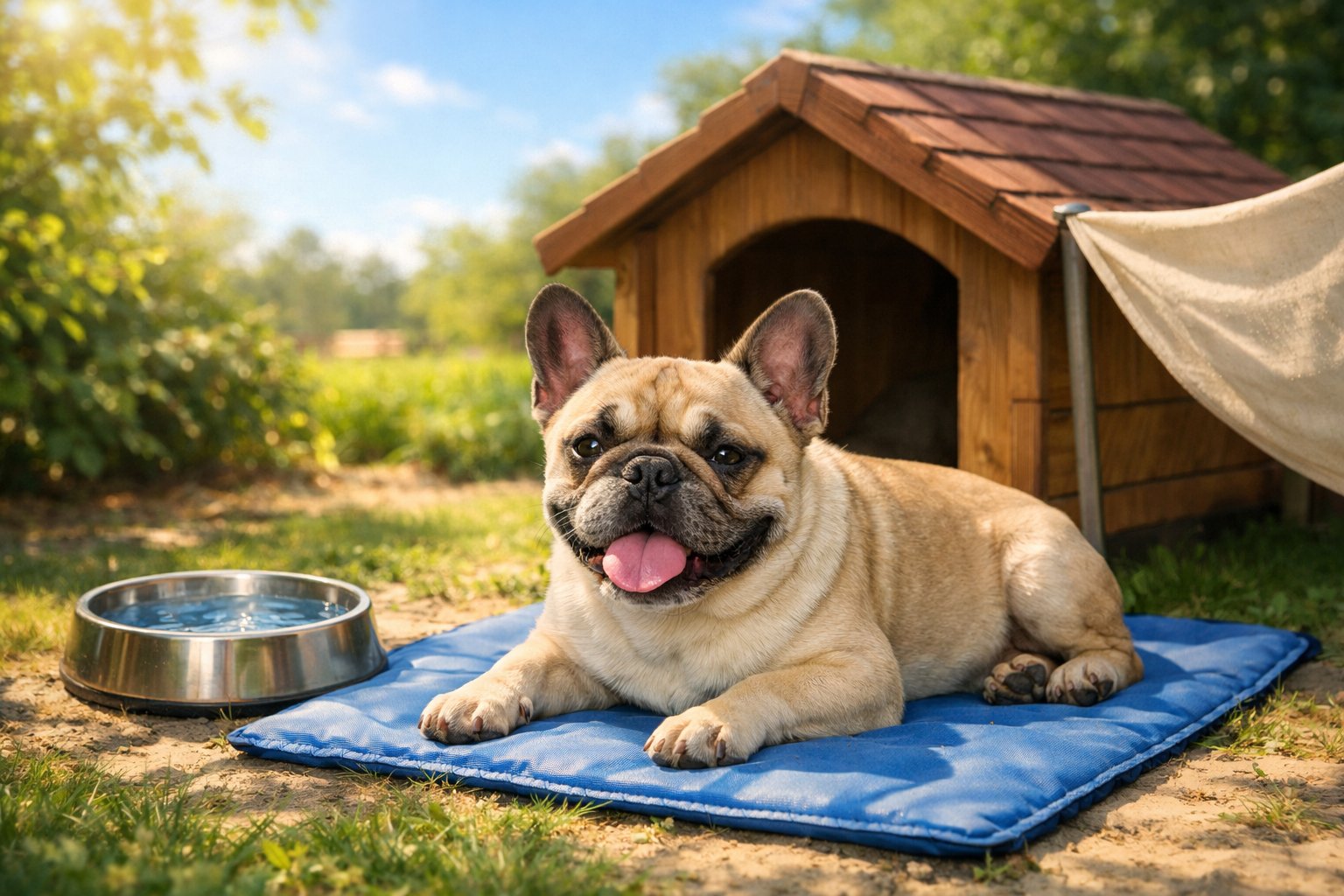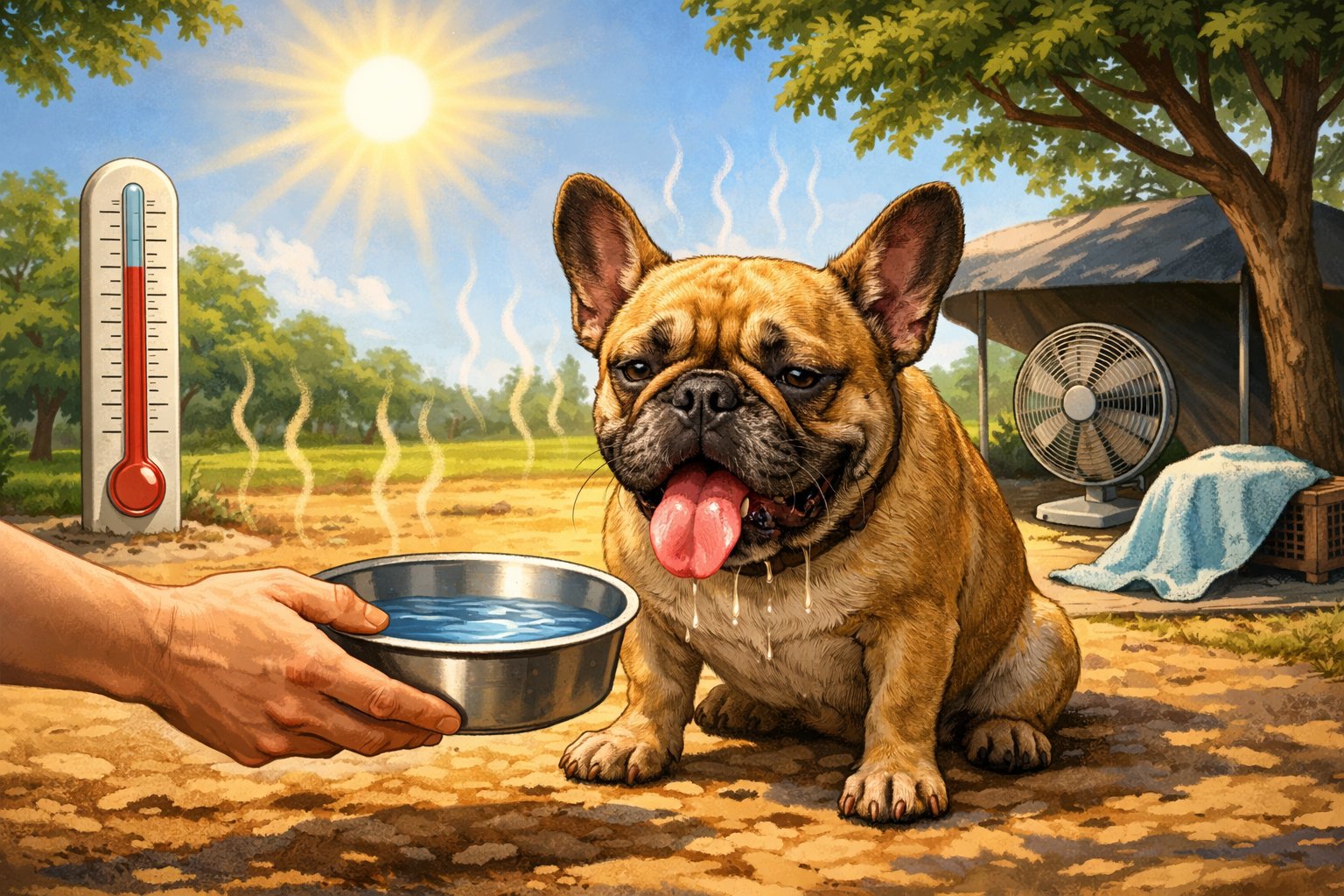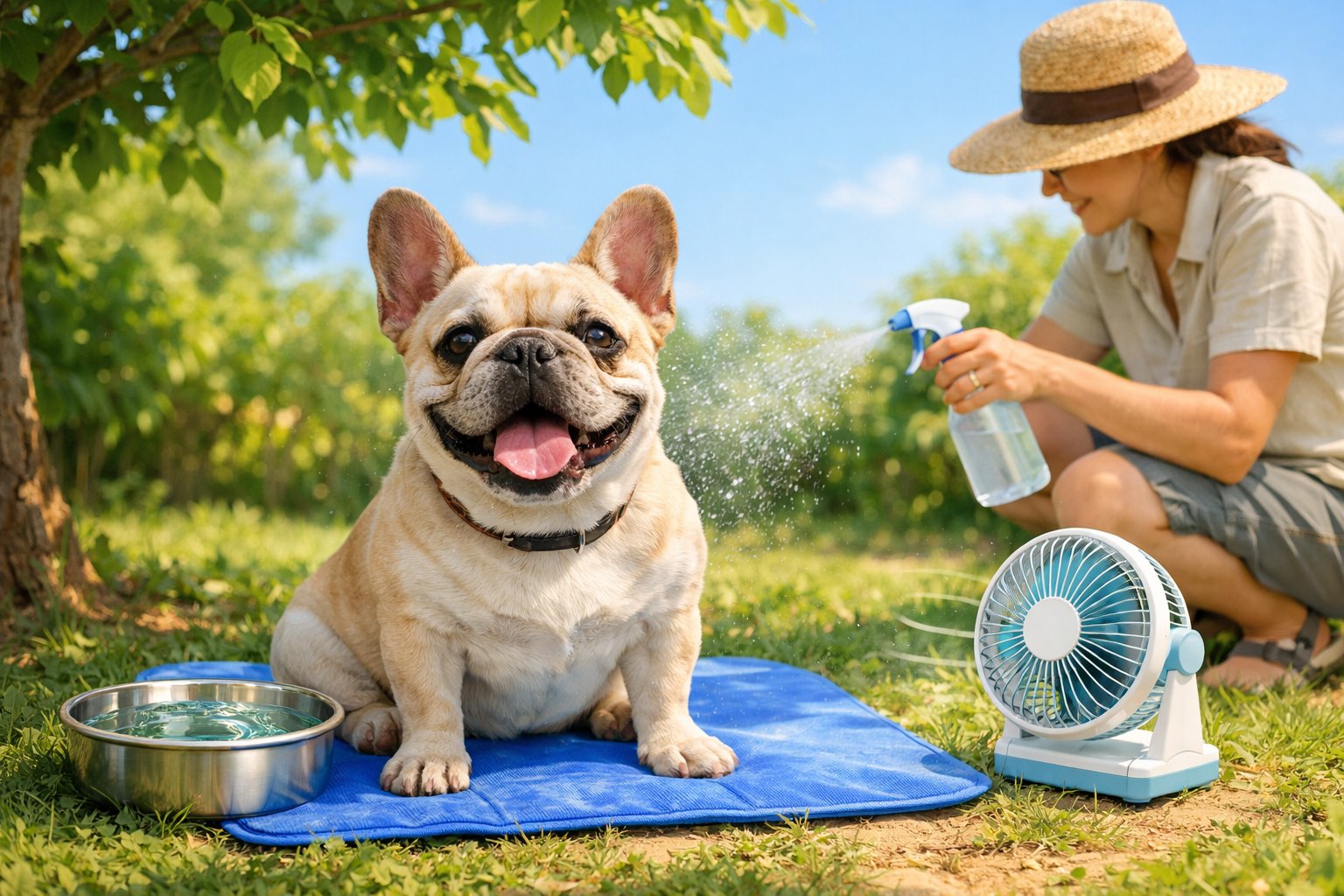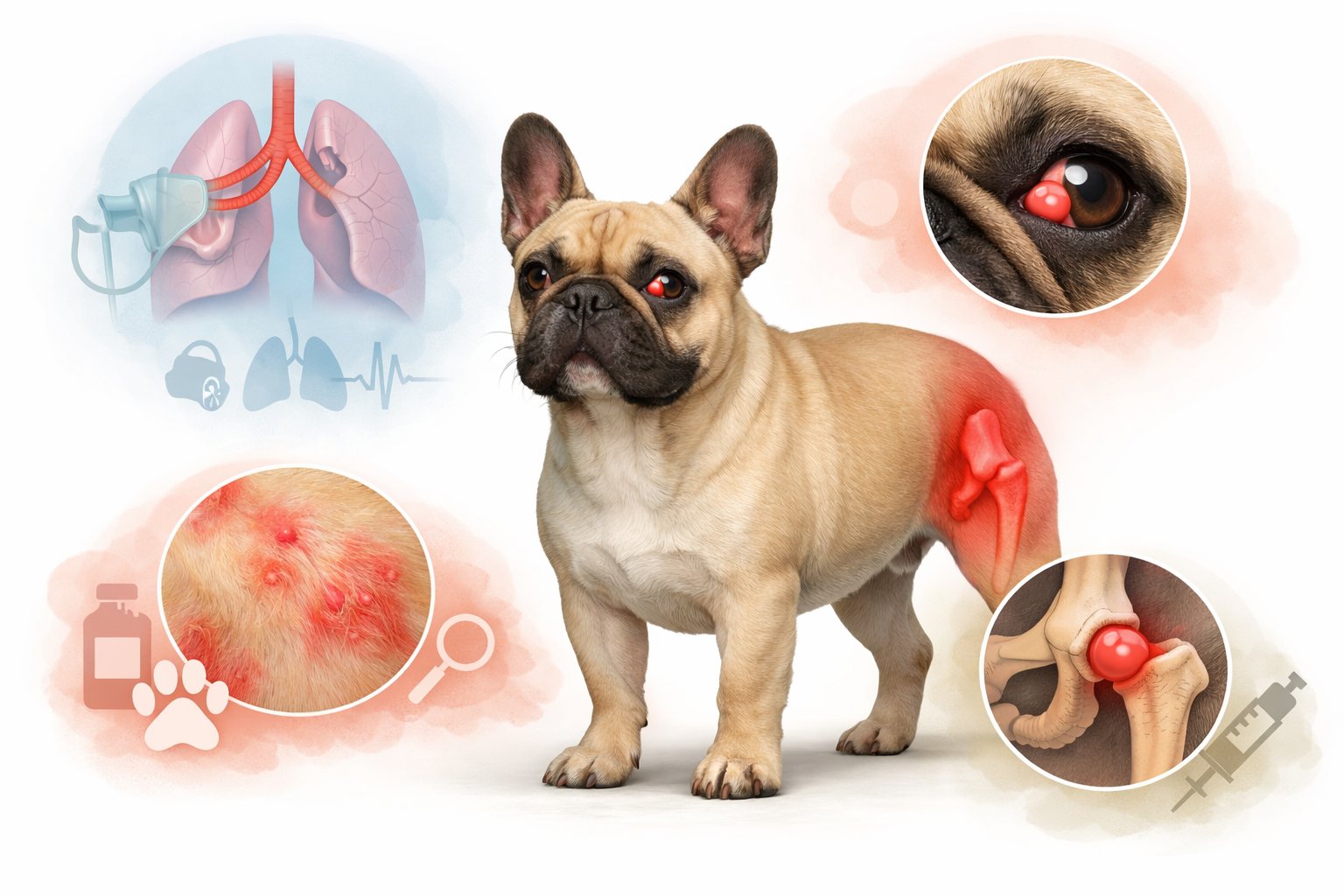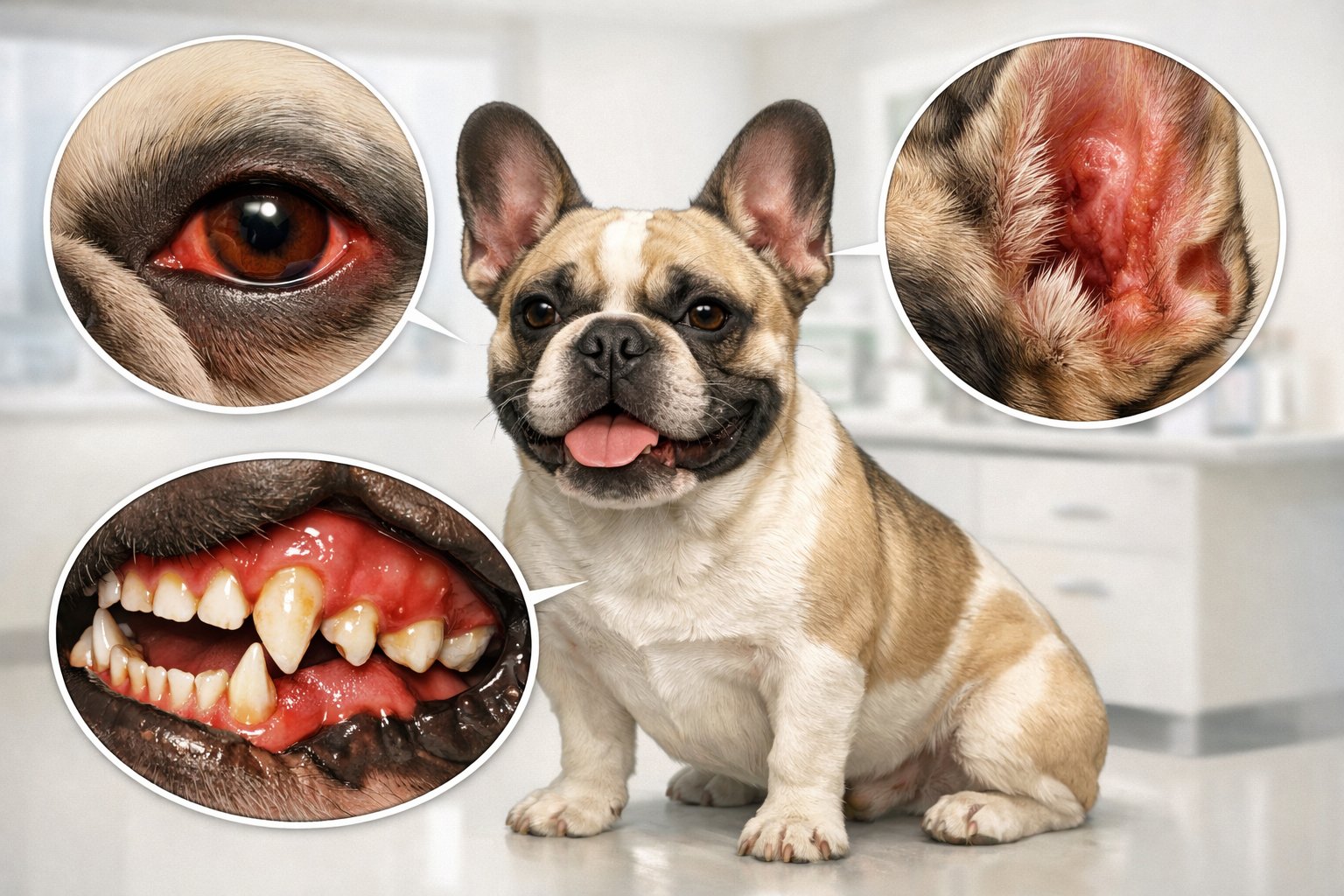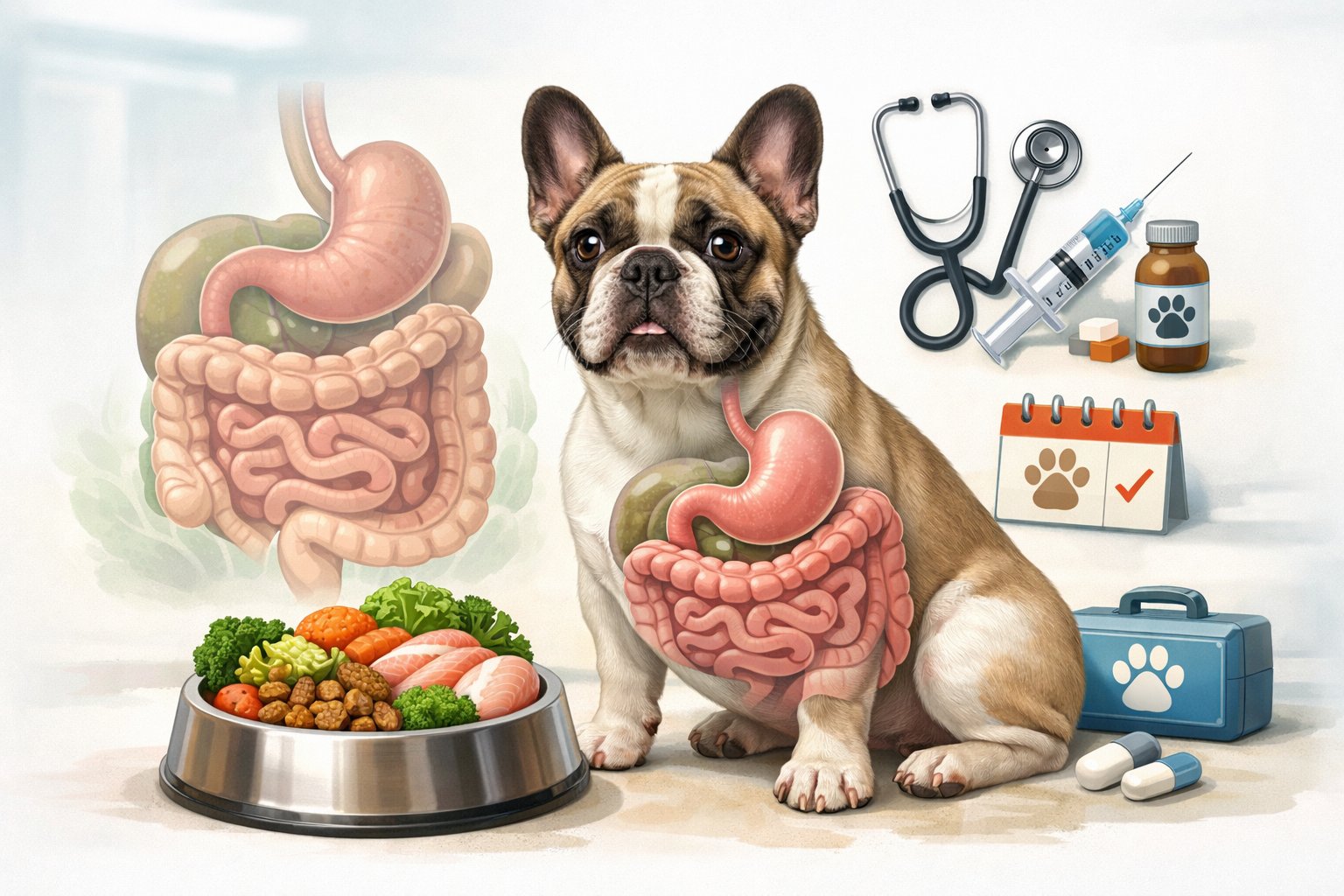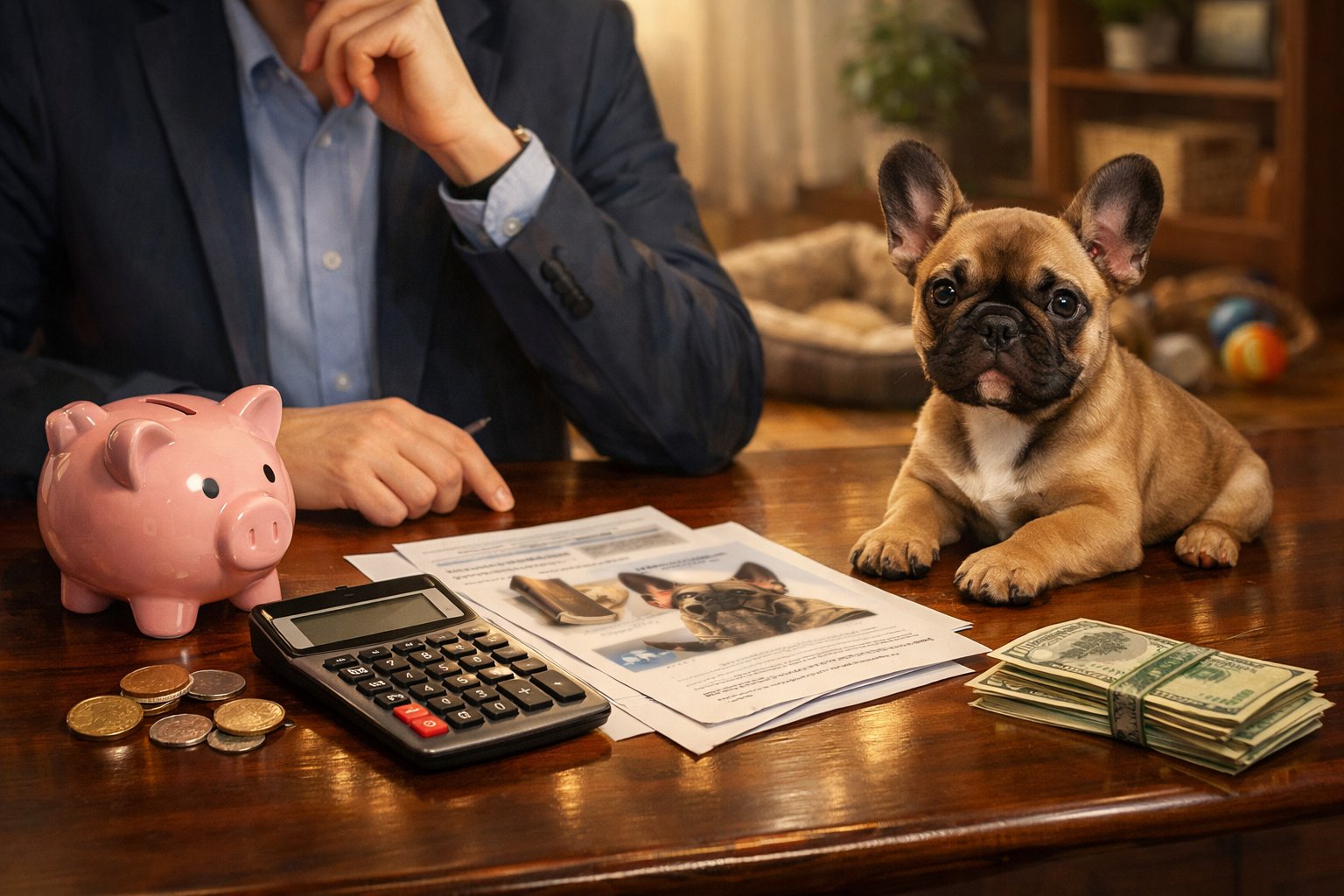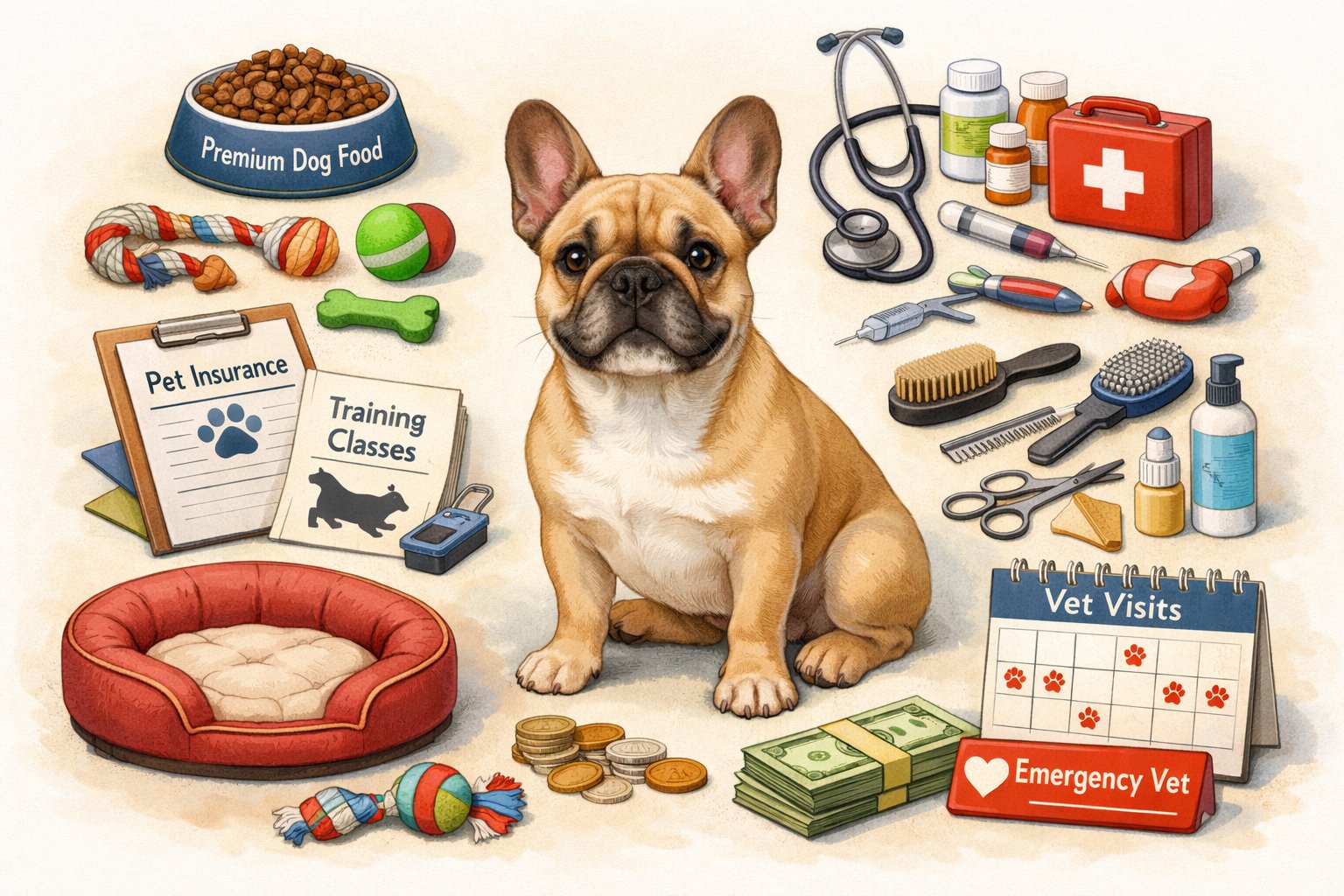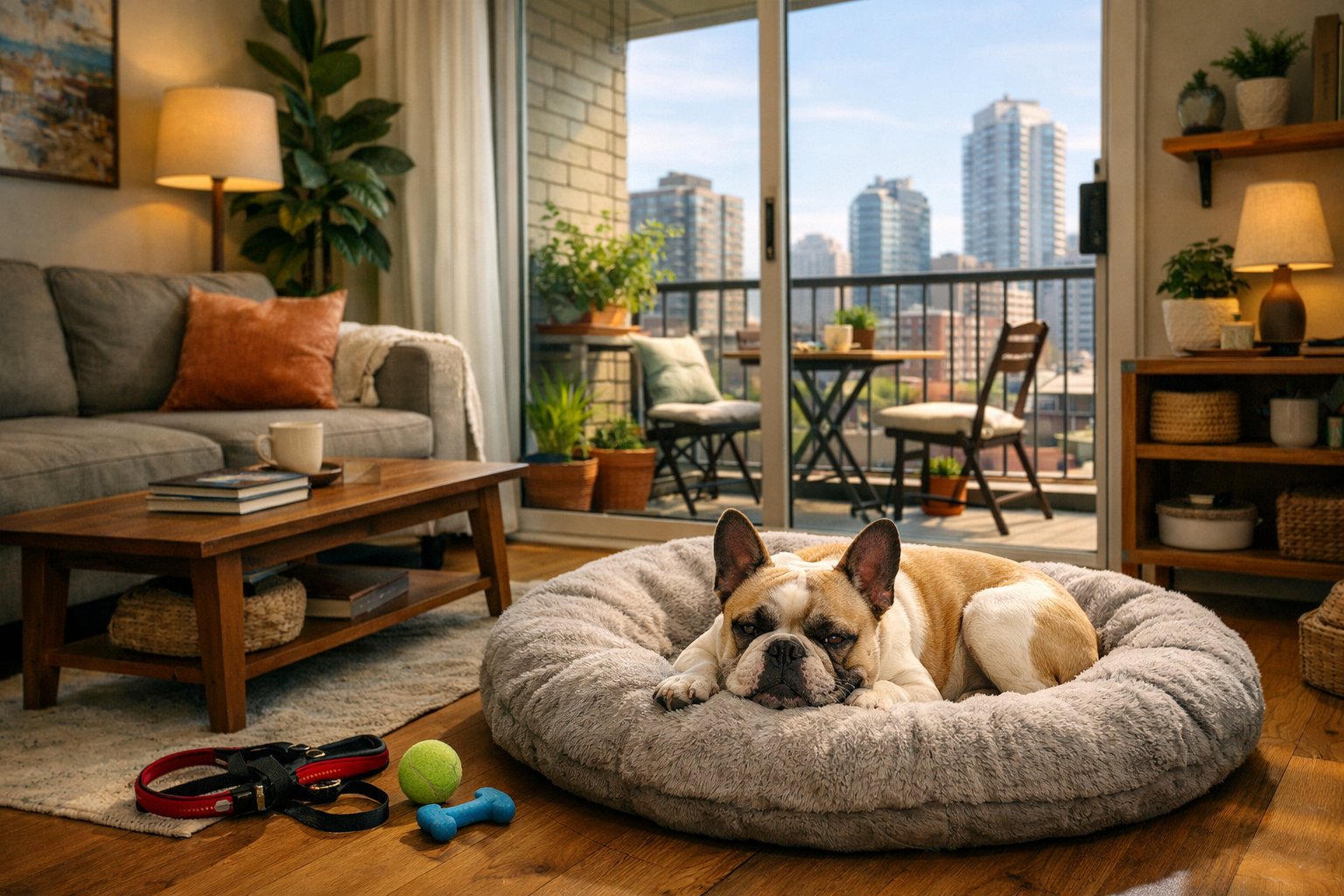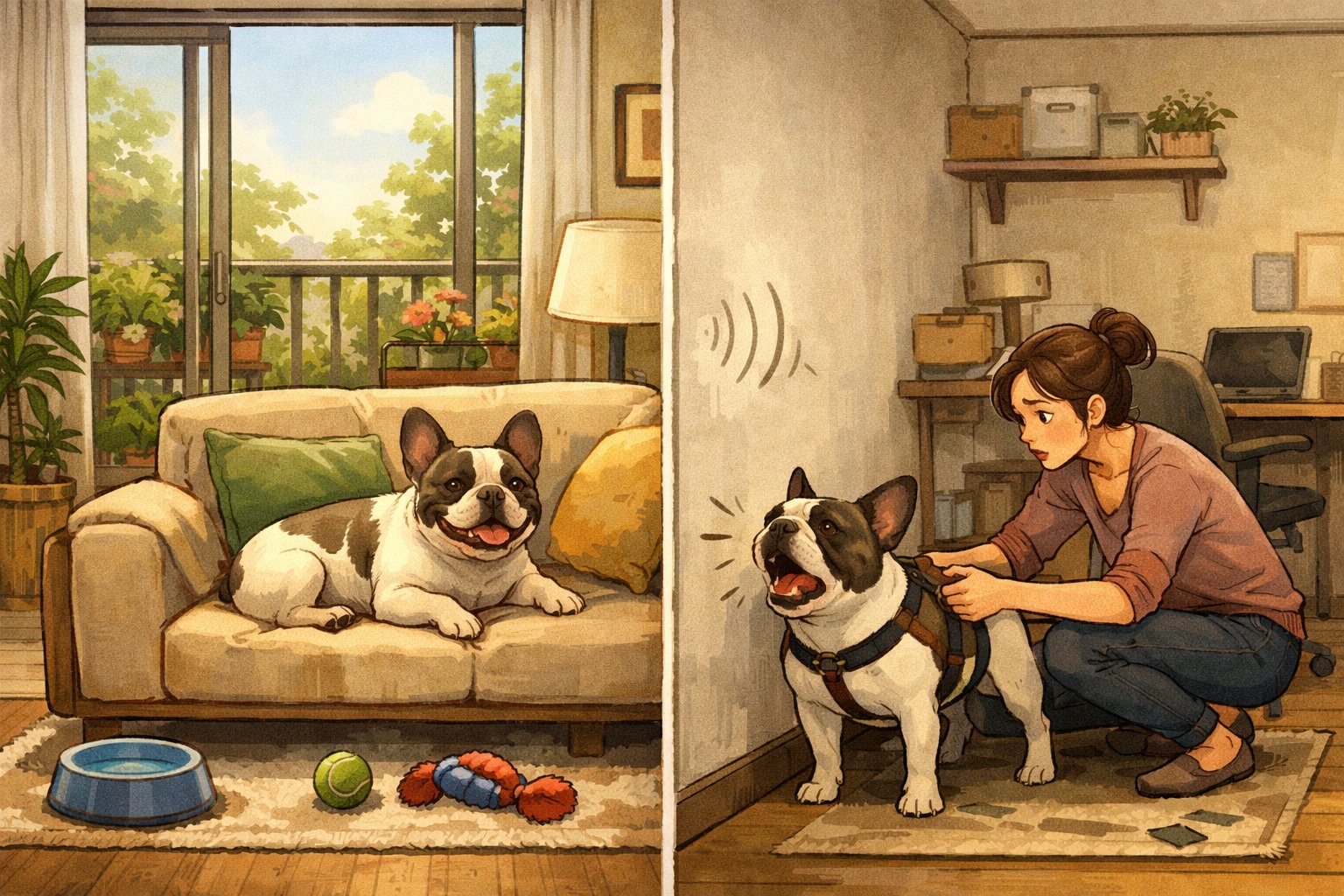Balanced Diet Essentials for French Bulldogs

A balanced diet for French Bulldogs supports steady energy, healthy weight, and fewer stomach issues. The right mix of protein, fat, and carbs helps manage common breed concerns like allergies and easy weight gain.
Macronutrient Requirements
French bulldog nutrition depends on balance, not extremes. Protein supports muscle and daily activity.
Fat provides energy and helps the skin and coat. Carbohydrates add fiber and steady fuel.
Most adult French Bulldogs do well with this general range:
| Nutrient | Daily Focus |
|---|---|
| Protein | 22–26% from animal sources |
| Fat | 12–16% from quality oils |
| Carbs + Fiber | Moderate and easy to digest |
Too many calories lead to fast weight gain. A measured diet for French Bulldogs helps protect breathing, joints, and long-term health.
Choosing Quality Protein Sources
Protein quality matters more than protein amount. French Bulldogs often have sensitive digestion and skin.
Foods for French Bulldogs should list a named animal protein as the first ingredient. Good options include chicken, turkey, beef, lamb, and fish.
Clear labels signal better quality and easier digestion. Avoid vague terms like “meat by-products” or “animal meal.”
Animal-based protein supports muscle without extra fillers. Many French Bulldogs handle single-protein diets better, especially when food allergies appear.
Simple recipes reduce stress on the gut and lower the risk of itching or loose stools.
Healthy Fats and Oils
Healthy fats play a key role in a balanced diet for French Bulldogs. They support skin health, brain function, and energy levels.
The focus should stay on quality, not quantity. Useful fat sources include fish oil, chicken fat, and flaxseed.
These provide omega-3 and omega-6 fatty acids. According to a detailed French Bulldog nutrition guide, these fats help manage skin irritation and dryness.
Too much fat causes weight gain fast. Controlled portions help keep French Bulldogs active without stressing their compact bodies.
Digestible Carbohydrates and Fiber
Carbohydrates should support digestion, not overload it. French Bulldogs benefit from carbs that digest easily and add fiber for gut health.
Common well-tolerated options include:
- Sweet potatoes
- Brown rice
- Oats
- Pumpkin
Fiber helps firm stools and reduce gas. Low-quality fillers like corn and wheat often trigger bloating or itching.
A focused approach to carbs supports smoother digestion and better nutrient absorption. Simple, whole ingredients work best.
Feeding Strategies and Special Considerations

French Bulldogs need careful feeding choices to support breathing, digestion, skin health, and weight control. Smart portions, the right food type, and safe treats help reduce common health risks.
French Bulldog Feeding Guide by Life Stage
A French bulldog feeding guide should change with age. Puppies need more calories and protein to support growth.
Adults need steady energy without weight gain. Seniors need fewer calories and more joint support.
- Puppies (up to 12 months): Feed 3–4 meals daily with puppy-formulated food.
- Adults (1–7 years): Feed 2 meals daily with balanced protein and fat.
- Seniors (8+ years): Feed 2 smaller meals with fewer calories and added fiber.
Many vets suggest watching body shape, not just weight. Clear guidance appears in this detailed French Bulldog feeding guide by age and weight.
Portion Control and Feeding Frequency
Portion control matters when feeding French Bulldogs because the breed gains weight easily. Even small weight changes can affect breathing and joints.
Most adults eat ½ to 1½ cups per day, split into two meals. Exact amounts depend on size, activity, and food type.
| Dog Type | Meals Per Day | Portion Tip |
|---|---|---|
| Puppy | 3–4 | Measure every meal |
| Adult | 2 | Adjust for activity |
| Senior | 2 | Reduce calories |
Owners should avoid free-feeding. Scheduled meals help digestion and make weight changes easier to spot.
Food Formats: Kibble, Wet, Raw, and Home-Cooked
Each food format has clear pros and cons. The best choice depends on budget, time, and the dog’s digestion.
- Kibble: Easy to store and measure. Choose small pieces for flat faces.
- Wet food: Adds moisture and flavor. Often helps picky eaters.
- Raw or fresh: Uses whole ingredients but needs careful balance.
- Home-cooked: Gives control but requires vet guidance.
Some Frenchies do better with limited ingredients due to allergies. A balanced approach like those explained in this French Bulldog nutrition guide helps owners compare options safely.
French Bulldog Treats: Safe Choices
French bulldog treats should stay simple and limited. Treats should make up no more than 10% of daily calories.
Good options include:
- Single-ingredient meat treats
- Small pieces of cooked chicken
- Commercial treats made for small breeds
Avoid treats with fillers, artificial colors, or sweeteners like xylitol. Crunchy treats may also support dental health when used sparingly.
Treat choices matter as much as meals. Practical tips appear in these French Bulldog feeding tips that focus on safety and portion size.
Managing Food Allergies and Sensitivities

French Bulldogs often react to certain foods with skin or stomach problems. Careful ingredient choices, simple diets, and vet-guided formulas help reduce flare-ups and keep daily feeding predictable.
Identifying Food Allergies in French Bulldogs
Food allergies in French Bulldogs often show up as itchy skin, ear infections, or loose stools. Some dogs also lick their paws or rub their face often.
These signs usually last for weeks, not days. Common triggers include chicken, beef, eggs, dairy, and wheat.
Many owners confuse food allergies with seasonal issues, so vets often suggest an elimination diet. This plan removes suspect foods for 8 to 12 weeks and adds them back one at a time.
Common signs linked to food reactions
| Skin Signs | Digestive Signs |
|---|---|
| Redness | Diarrhea |
| Itching | Gas |
| Ear infections | Vomiting |
Clear tracking helps narrow causes, which many guides on food allergies in French Bulldogs stress as a key step.
Hypoallergenic and Novel Protein Diets
Hypoallergenic dog food limits ingredients to reduce reactions. These formulas avoid common proteins and fillers that often cause trouble.
Fewer ingredients also make label reading easier. Novel proteins like lamb, duck, or salmon work well if the dog has never eaten them before.
The immune system is less likely to react to new proteins. Many plans also skip grains, soy, and artificial colors.
Owners should still check labels closely. Some foods claim to be hypoallergenic but include mixed proteins.
Articles on choosing the best dog food for French Bulldogs with allergies note that protein clarity matters more than marketing terms.
Hydrolyzed Protein and Special Formulas
A hydrolyzed protein diet breaks proteins into very small pieces. The body cannot recognize them as allergens.
Vets often suggest this option when other diets fail. These formulas usually require a prescription.
They cost more, but they help dogs with multiple or severe reactions. Many also include added fiber and fatty acids to support digestion and skin health.
Hydrolyzed diets appear often in vet-reviewed lists of dog foods for French Bulldogs with allergies. Owners should follow feeding rules closely and avoid treats that could undo progress.
